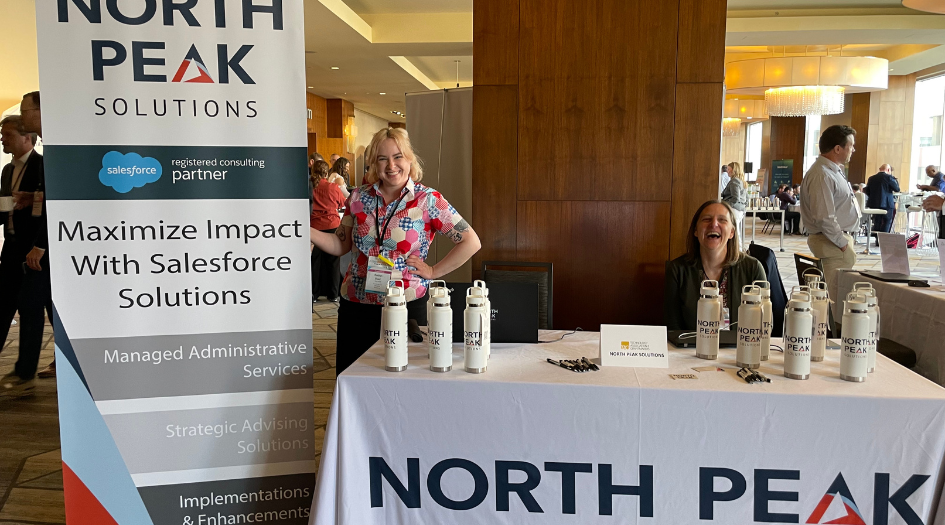
Building CRM Expertise In-House: Why It Matters and How to Do It
Customer Relationship Management (CRM) systems—like Salesforce—are powerful tools that can help organizations leverage their impact with data-informed decisions. But to get the most out of a CRM, you need more than just the software. You also need expertise. Whether you’re starting from scratch or looking to grow your internal capabilities, building CRM expertise in-house can help your organization boost productivity and meet mission-critical goals.
What Does CRM Expertise Look Like?
CRM expertise isn’t just about knowing where to click or how to input data—it’s about understanding how the system supports your organization’s goals. A successful CRM expert:
- Understands how the data is structured and how it connects different parts of the system
- Can translate business needs into system configurations (e.g., new fields, automations, reports)
- Can effectively train others, document processes, and troubleshoot issues when they arise
CRM expertise is a mix of technical know-how, business acumen, and systems thinking—plus a willingness to expand skills and knowledge related to the system.
Training, Documentation, and Ongoing Support
Training isn’t a one-time event—it’s an ongoing process. A healthy CRM environment includes:
- Internal documentation: Created during implementation to explain system specifications and business processes.
- Topic-specific docs: Created on an as-needed basis to explain specific features or tasks.
- Reference materials: CRM experts (internal or external) should provide guides, how-tos, and quick tips for staff to refer to.
The key is to build a system of support so users don’t feel lost after the initial setup. In addition to documentation and reference materials, this may also include hiring a managed administrative services consultant who can provide additional training and support to the in-house admin.
The Role of Leadership in CRM Expertise
Even the most functional CRM won’t thrive in an unsupportive environment. To help build in-house expertise, leadership needs to prioritize CRM use and recognize its strategic value. To help meet these goals, leadership should:
- Make space in staff schedules for learning and system use
- Acknowledge that different users have different learning curves
- Encourage a culture where it’s okay to ask questions and make mistakes
It’s also important to support staff in understanding their skill levels—some may be hesitant to use the system at all, while others may overestimate their knowledge and make changes without understanding the consequences. A successful leader will ensure that staff have access to the appropriate resources, training, and support to help them grow their knowledge and become more confident using the system.
Building Expertise In-House
So how do you build lasting CRM expertise from within? It starts with identifying power users. These are the people who are already curious about or comfortable with the system and who want to go deeper. Depending on the scenario, some organizations will need to hire a dedicated admin if the system is complex or highly integrated, or if there are no existing power users on staff. Other ways to build in-house expertise include:
- Training: Use platforms like Salesforce’s Trailhead to offer accessible, bite-sized learning. Trailhead is a fantastic (and free!) way to gain practical knowledge.
- Motivate through support: Motivation often depends on workload. Make sure CRM responsibilities are balanced with other duties.
- Recognize achievements and give people space to grow.
If an organization doesn’t have a full-time admin, it’s especially important to give power users dedicated time to work in and learn the system.
Outcomes of Having a CRM Expert In-House
There are significant benefits of having in-house CRM expertise. Perhaps the most important is that the CRM becomes a tool that guides strategic decision-making, not just a place for data storage. Other positive outcomes are:
- Better management and troubleshooting: Issues are resolved faster, and data stays cleaner.
- Internal training and advocacy: The in-house expert can train others, share best practices, and promote smart system use.
- Efficient support structure: An internal admin can triage tasks, handling most needs and escalating only the more complex issues to external consultants.
Building CRM expertise in-house isn’t just about mastering a platform like Salesforce—it’s about embedding system knowledge into your organization’s way of working. With the right training, support, and culture, your team can own your CRM in a way that drives real impact. Whether you’re just getting started or trying to level up, investing in your people is the smartest CRM move you can make.
About North Peak
North Peak provides Salesforce-based services for nonprofits, foundations and the affordable housing sector who want to utilize the power of high-functioning CRM and GMS platforms. We achieve this through a holistic set of services, tailored to the needs of our clients.
Blog: Project Managers are Key to a Successful Salesforce Implementation
When it comes to big initiatives like a Salesforce implementation, the project manager is the glue that helps hold the project together.
Schedule a Free Consultation
If you’re considering implementing Salesforce or need help with Managed Administrative Services, or simply have questions about how to transform your organization’s data practices, we’d love to talk! Contact us for a free 30 minute call.



